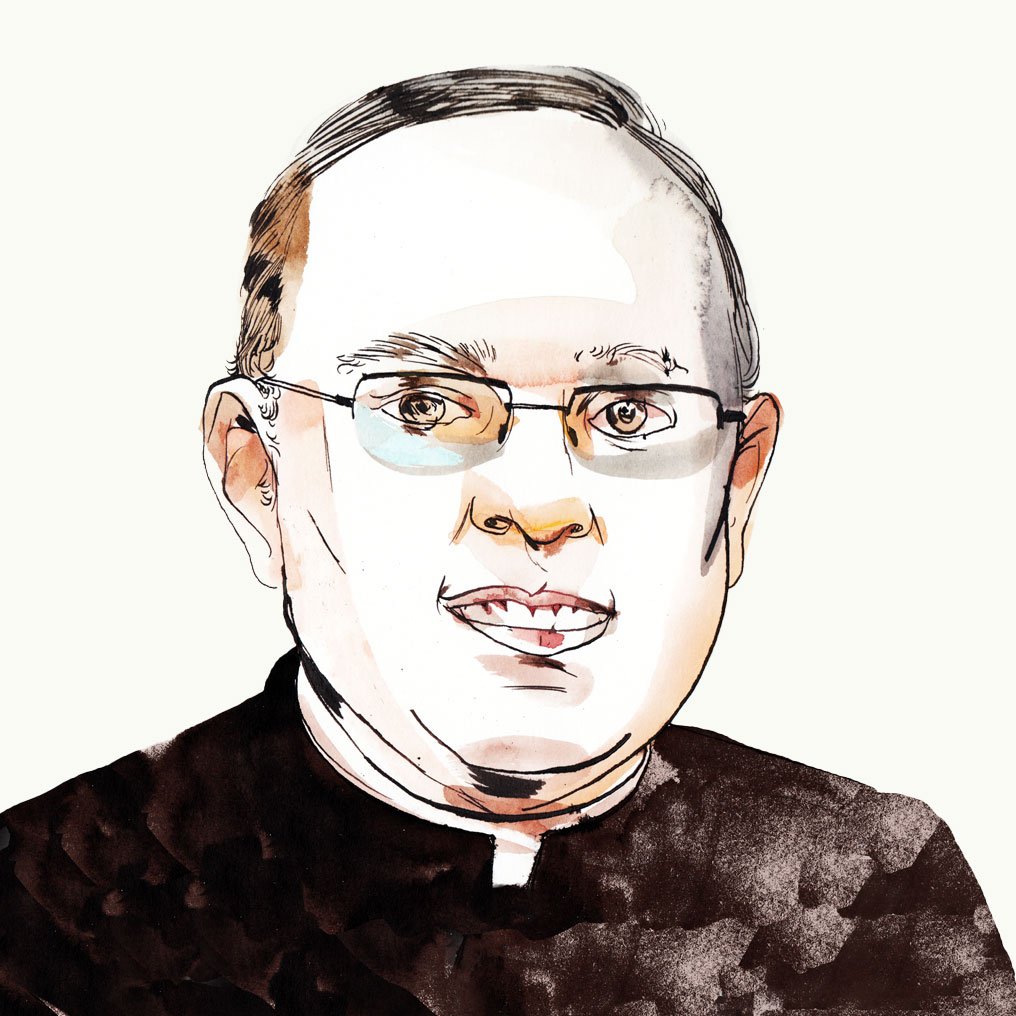When Sen. Dianne Feinstein grilled federal circuit court nominee—and now Supreme Court nominee—Amy Coney Barrett three years ago, she fretted that “the dogma lives loudly within you. And that’s of concern.”
Given the senator’s obvious prejudices, she should indeed be concerned. Ms. Barrett’s life story suggests that she actually believes and seeks to live what her Catholic faith teaches. Worse, she has a superb intellect, a deep grasp of the law, and an excellent record as a jurist. In other words, she’s a nightmare for a certain kind of political tribe.
Let’s put aside for a moment Sen. Feinstein’s Know Nothing-style vulgarity. After all, she’s hardly alone in her bigotry. Disdain for vigorous religious convictions, especially the Catholic kind, is a virus that’s going around. It seems to infect a number of Democratic senators, including Sen. Kamala Harris, Feinstein’s California colleague and vice presidential nominee, who saw looming peril in that dangerous national conspiracy otherwise known as the Knights of Columbus.
Sen. Feinstein’s words help us see clearly how some in our political class now view Catholics who are more than merely “nominal” in their faith. It’s true that anyone baptized as a Catholic is, in fact, a Catholic. In the eyes of the Democratic party, that’s not a problem. If you’re photographed piously with your rosary beads at prayer—even better. The cultural loyalty of many Catholic voters to a once heavily Catholic, working-class party dies hard, no matter how different that party is today. As an elected official, you may even get an award from a major Catholic institution. But if you’re the kind of Catholic who seeks to discipline his or her life around Catholic beliefs regarding marriage and family, religious freedom, sex, and abortion—well, that’s a different matter, as Democratic Congressman Dan Lipinski discovered when his own party dumped him in a primary earlier this year. In Bill Maher’s immortal words, a woman like Amy Coney Barrett, whatever her professional credentials, is just “a [expletive] nut.”
In a sane age, these kinds of attacks, more appropriate to a restroom wall than discourse in a nation of laws, would be seen as loathsome. But we don’t live in a sane moment, as Sens. Feinstein and Harris, and Mr. Maher, have helpfully demonstrated.
Catholics in this country spent more than a century fighting their way into the American mainstream. The cost has been high. To the degree that self-described Catholic political leaders are indistinguishable in their views and actions from their colleagues with no faith at all, the cost has been far too high. Millions of Catholics have served and died defending this nation, its freedoms, and its institutions. In the last century, all of the military chaplains awarded the Medal of Honor were Catholic priests. A politics of democratic pluralism requires that differences of belief must be respected. Catholics cannot, and don’t, expect those with different convictions to agree with their religious beliefs. But Catholics do rightly demand civility and respect for the teachings of their Church, especially from a Senate supposedly informed by a spirit of service to the whole nation.
Today’s hostility toward those who support Catholic teaching should concern every practicing Catholic—and anyone who values the First Amendment. If attacks on belief are an acceptable standard by which to impugn judicial nominees today, then tomorrow they’ll be used on the rest of us who uphold the teachings of our faith. What’s been playing out in Senate confirmation hearings and public debates over judicial nominees is a harbinger of future attacks on the Church herself and on any Catholic who holds with her enduring moral witness. Over the past decade, we’ve already seen the Catholic Church— and many of her ministries and institutions—targeted specifically for matters of belief.
Those who value our First Amendment right to religious freedom should realize that tests about belief are attacks on religious liberty. And positioning dissenting Catholics as “mainstream Americans” and believing Catholics as “extremists”—now a common and thoroughly dishonest culture war technique—is a particular affront to the free exercise of religion. It puts the rights of far more Americans at risk than will ever be nominated for the court.
Charles J. Chaput, O.F.M. Cap., is the archbishop emeritus of Philadelphia. His latest book, Things Worth Dying For: Thoughts on a Life Worth Living, will be published by Holt in March 2021.
First Things depends on its subscribers and supporters. Join the conversation and make a contribution today.
Click here to make a donation.
Click here to subscribe to First Things.
The Erosion of Sin
Readers of the April issue of First Things will have seen James F. Keating’s learned and perceptive…
Hope Without God?
Hopeful Pessimism by mara van der lugt princeton university press, 280 pages, $24.95 Is it possible to be…
The Singularity Has Already Happened
Recent feats in so-called artificial intelligence have not only ignited Terminator-inspired apocalyptic fears but have also revived…


